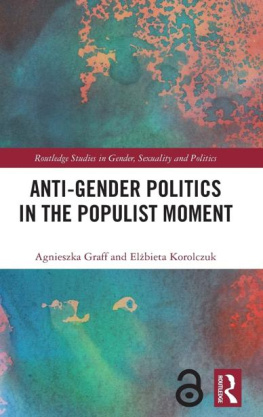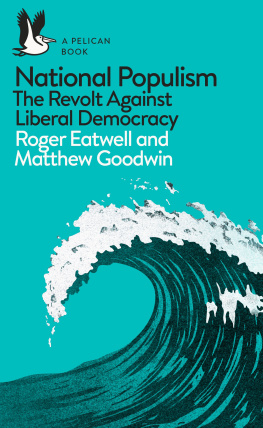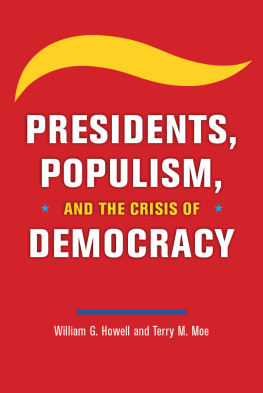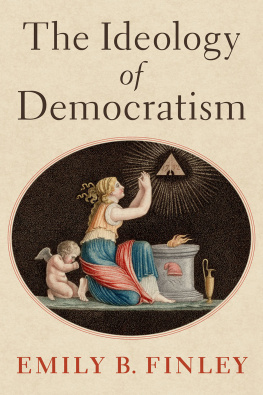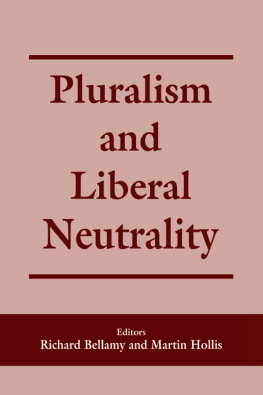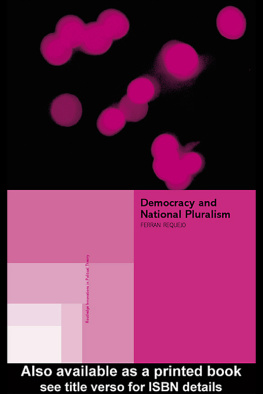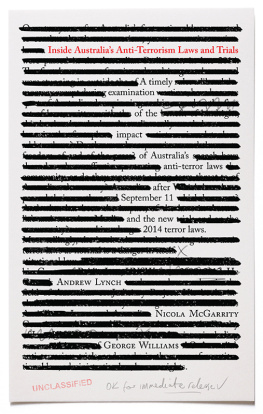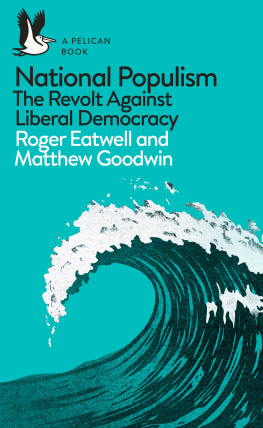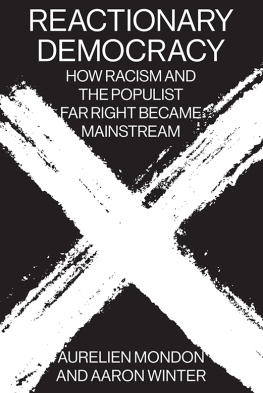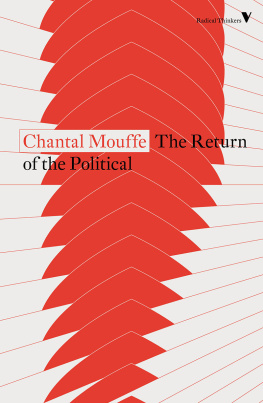William A. Galston - Anti-Pluralism: The Populist Threat to Liberal Democracy
Here you can read online William A. Galston - Anti-Pluralism: The Populist Threat to Liberal Democracy full text of the book (entire story) in english for free. Download pdf and epub, get meaning, cover and reviews about this ebook. year: 2020, publisher: Yale University Press, genre: Politics. Description of the work, (preface) as well as reviews are available. Best literature library LitArk.com created for fans of good reading and offers a wide selection of genres:
Romance novel
Science fiction
Adventure
Detective
Science
History
Home and family
Prose
Art
Politics
Computer
Non-fiction
Religion
Business
Children
Humor
Choose a favorite category and find really read worthwhile books. Enjoy immersion in the world of imagination, feel the emotions of the characters or learn something new for yourself, make an fascinating discovery.

- Book:Anti-Pluralism: The Populist Threat to Liberal Democracy
- Author:
- Publisher:Yale University Press
- Genre:
- Year:2020
- Rating:4 / 5
- Favourites:Add to favourites
- Your mark:
- 80
- 1
- 2
- 3
- 4
- 5
Anti-Pluralism: The Populist Threat to Liberal Democracy: summary, description and annotation
We offer to read an annotation, description, summary or preface (depends on what the author of the book "Anti-Pluralism: The Populist Threat to Liberal Democracy" wrote himself). If you haven't found the necessary information about the book — write in the comments, we will try to find it.
Anti-Pluralism: The Populist Threat to Liberal Democracy — read online for free the complete book (whole text) full work
Below is the text of the book, divided by pages. System saving the place of the last page read, allows you to conveniently read the book "Anti-Pluralism: The Populist Threat to Liberal Democracy" online for free, without having to search again every time where you left off. Put a bookmark, and you can go to the page where you finished reading at any time.
Font size:
Interval:
Bookmark:
Anti-Pluralism
The Populist Threat to
Liberal Democracy
William A. Galston
Foreword by James Davison Hunter and John M. Owen IV
Yale UNIVERSITY PRESS
New Haven & London
Published with the assistance of the Institute for Advanced Studies in Culture, University of Virginia, and with assistance from the Louis Stern Memorial Fund.
Copyright 2018 by William A. Galston.
All rights reserved.
This book may not be reproduced, in whole or in part, including illustrations, in any form (beyond that copying permitted by Sections 107 and 108 of the U.S. Copyright Law and except by reviewers for the public press), without written permission from the publishers.
Portions of originally appeared in William A. Galston, The 2016 U.S. Election: The Populist Moment, Journal of Democracy (April 2017): 2133.
Yale University Press books may be purchased in quantity for educational, business, or promotional use. For information, please e-mail (U.K. office).
Set in Janson Roman type by Integrated Publishing Solutions, Grand Rapids, Michigan.
Printed in the United States of America.
Library of Congress Control Number: 2017952044
ISBN 978-0-300-22892-2 (hardcover : alk. paper)
A catalogue record for this book is available from the British Library.
This paper meets the requirements of ANSI/NISO Z39.48-1992
(Permanence of Paper).
10 9 8 7 6 5 4 3 2 1
To Vclav Havel and Liu Xiaobo, who never lost hope
by James Davison Hunter and John M. Owen IV
INTRODUCTION
Challenges to Liberal Democracy
ONE
Democratic Erosion and Political Convergence
TWO
Liberal Democracy in Theory
THREE
The Populist Challenge
FOUR
The European Project and Its Enemies
(with Clara J. Hendrickson)
FIVE
Is Democracy at Risk in the United States?
SIX
Liberal Democracy in America
What Is to Be Done?
SEVEN
Democratic Leadership
EIGHT
The Incompleteness of Liberal Democracy
The Yale University Press series Politics and Culture begins with the premise that self-government, the hallmark and glory of the United States, the West, and an expanding number of countries around the world, is ailing. Those who sense the ailment cannot agree on what it is, much less on how it is to be treated; and that disagreement, only deepening as time passes, is in fact part of the ailment. In the young twenty-first century, liberal democracy, that system that marries majority rule with individual rights, has entered a crisis of legitimacy. As practiced in recent decades, and as an international ordering principle, it has failed to deliver on its promises to growing, and increasingly diverse, numbers of mobilized and vocal people. The fate of liberal democracy would seem to be in the balance.
In the United States and across Europe, the discontented have multiplied, sorting themselves into political factions that are new, yet familiar too. Populisms of right and left, fed and channeled by new media, threaten to upend liberalisms grand ambition to pull down all barriers to individual autonomy or emancipation. In recent decades, for example, liberalism has become allied with the forces of globalization and, in the process, has eroded barriers of national sovereignty with the free movement of goods, capital, and even people across national boundaries. This has generated all sorts of dislocations, most obviously in local economies and labor markets. Just as important, though, are cultural dislocations driven by the growing dominance of a secular, progressive cosmopolitanism that has acted like a solvent on local cultures. All of this carries disruptive political consequences on the left and on the right that have no obvious solutions. It is the absence of substantive political solutions that seem fair and just that explains why (among other reasons) such large swathes of the public are so restive.
William Galston is rightly known as one of the most astute political observers writing today. He is both a political theorist and a policy analyst and is equally at home in both worlds. In Anti-Pluralism he draws together a synthesis of philosophical insight, historical evidence, and empirical data in a cogent analysis of the complex difficulties facing liberal democracy in the early twenty-first century. Liberal democracy can survive its legitimation crisis, he argues, but its preservation requires its reform, and reformation requires reflection on what is to be preserved and what accretions and by-products of actually existing liberalism need to be shed. Readers of his previous books will recognize the fairness and judgment on display here. Any repair of the liberal project will require the kind of critical response Professor Galston mounts: he consults the sources, observes carefully, and proposes reforms large and small, listening throughout to all citizens, regardless of circumstance or conviction.
James Davison Hunter and
John M. Owen IV, Series Editors
My thanks go first to the University of Virginias Institute for Advanced Studies in Culture and especially to James Davison Hunter and John M. Owen IV, who hosted the paper that launched me on this path and then the lectures at the University of Virginia that moved me down the path toward this book. Their steadfast support over the past four years was indispensable.
Second, I must thank my colleagues at the Brookings Institutiontoo numerous to listfor their willingness to share with me the fruits of their research. I have learned from Brookings scholars in economics, foreign policy, and metropolitan studies as well as in my home base in governance studies. The mlange of disciplines and methods this book employs reflects their influence and is the better for it. In an era of academic hyperspecialization, Brookings represents a genuine intellectual community.
I must express my gratitude to Clara J. Hendrickson, who began as my research assistant and ended as my collaborator. Her ability to assemble, digest, and summarize large quantities of material was . I am not sure I would have finished this book without her; I know her efforts made it better. Needless to say, I bear ultimate responsibility for all its remaining sins, whether of commission or omission.
I am grateful, finally, to Oxford University Press and Johns Hopkins University Press for permission to make use of previously published materials.
Anti-Pluralism
Challenges to Liberal Democracy
In just twenty-five years, the partisans of liberal democracy have moved from triumphalism to near despair. Neither sentiment is warranted. History is not a linear movement toward a liberal democratic world. Liberal democracy is not the end of history; nothing is. Everything human beings make is subject to erosion and contingency. Liberal democracy is fragile, constantly threatened, always in need of repair.
But liberal democracy is also strong, because, to a greater extent than any other political form, it harbors the power of self-correction. Not only do liberal democratic institutions protect citizens against tyrannical concentrations of power, they also provide mechanisms for transforming the publics grievances and unmet needs into effective reforms. These mechanisms do not run on their own; they need determined leaders with clear ideas. Fortunately, they permit such leaders to gain power: witness the astonishing victory of French president Emmanuel Macron, who upended an ossified system and heads a parliamentary majority party that did not even exist two years ago.
To be sure, the power of self-correction is not always enough to prevent liberal democracies from crumbling. As we learned in the 1920s and 1930s, the combination of public stress and strong undemocratic movements can be irresistible. But the oft-heard analogy between those decades and our current situation obscures more than it reveals. Todays economic ills pale in comparison to the Great Depression of the 1930s, and todays autocratic regimes lack the ideological power that fascism and communism enjoyed at their peak.
Next pageFont size:
Interval:
Bookmark:
Similar books «Anti-Pluralism: The Populist Threat to Liberal Democracy»
Look at similar books to Anti-Pluralism: The Populist Threat to Liberal Democracy. We have selected literature similar in name and meaning in the hope of providing readers with more options to find new, interesting, not yet read works.
Discussion, reviews of the book Anti-Pluralism: The Populist Threat to Liberal Democracy and just readers' own opinions. Leave your comments, write what you think about the work, its meaning or the main characters. Specify what exactly you liked and what you didn't like, and why you think so.

